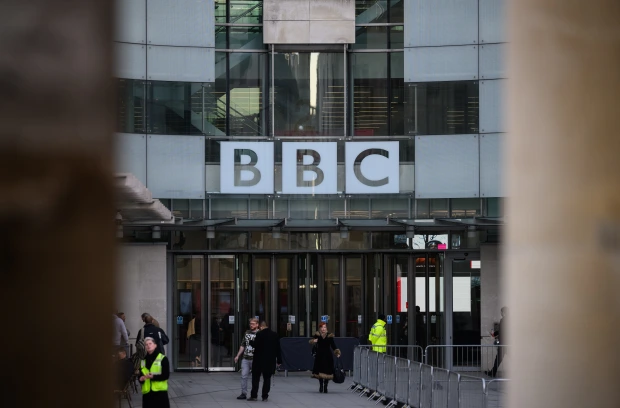THE BBC is axing 382 jobs from its World Service as the broadcaster moves towards a digital future.
The scheme forms part of an ongoing shake-up that will see around 1,000 jobs cut across the corporation over the next few years.

The BBC has announced plans to cut 382 jobs across its World Service
BBC Arabic radio and BBC Persian radio are being closed under the new plans.
World Service English will continue to operate globally as 24-hour broadcast radio.
The channel will see new scheduling, programmes and podcasts that will be announced in due course.
Teams based in London covering regions such as Thailand, Korea and India will be asked to relocate.
BEEB BYE
Naga Munchetty bids farewell to BBC co-star with emotional tribute as he quits
And almost half of all 41 language services would be digital only, the BBC said.
A statement added: “Today’s proposals entail a net total of around 382 post closures. The proposals will see seven more language services moving to digital only, modelling the success of others which are already offering purely digital services and performing well with audiences.
“The BBC World Service will continue to operate in all the languages and countries where it is currently present, including the new languages added during its expansion in 2016. No language services will close.”
The announcement added: “The World Service will continue to serve audiences during moments of jeopardy and will ensure audiences in countries such as Russia, Ukraine and Afghanistan have access to vital news services, using appropriate broadcast and distribution platforms.”
It follows BBC Four and CBBC being scrapped as normal TV channels as viewers move to streaming services to watch their programmes.
BBC World News and the BBC News channel will also merge to create a single 24-hour TV news channel for UK and global viewers.
The move will go towards a £500million budget cut for the taxpayer-funded corporation.
The BBC was forced to claw back a further £285million after it was announced in January that the licence fee will be frozen at £159 for the next two years.
There have already been rounds of redundancies over the past decade to keep costs up.







